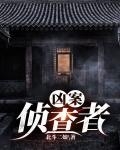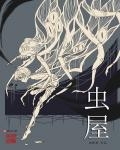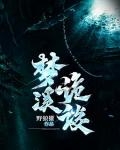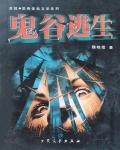Chapter 11 1
The danger came quickly and was resolved quickly. Except for Mu Linfeng and Zhang Xiaosan, no one present could even see clearly what kind of divine beast drove away the evil cats on the roof. In fact, the people of the Tan family hoped in their hearts that it was a divine creature that came to protect them.
After Mr. Tan's body was placed in the coffin and the lid was closed, everyone finally breathed a sigh of relief. However, the burial ceremony was not over yet. The next step was to nail the coffin lid, commonly known as "suppressing the nail."
Seven nails are needed to stabilize the structure, which are called "descendant nails" locally. They can bring prosperity to future generations.
Mu Linfeng asked the two Tan brothers to go outside the courtyard gate, firstly to call in the carpenter waiting outside. Secondly, the filial son was forbidden to approach when nailing the coffin lid, so the two of them had to wait outside the door.
The carpenter who had been waiting outside came in. He was in his fifties, holding a carpenter's axe in his hand. He seemed very familiar with nailing the coffin. Without Mu Linfeng's instructions, he picked up a nail and smashed the nail halfway into the man with a "snap". Then he waited for Mr. Tan outside to shout "dodge the nail".
This is a custom of nailing the coffin. Every time the carpenter in the yard strikes the nail, the filial son outside the gate will shout, "Dad, be careful" and "Dad, don't be afraid."
This is to remind the deceased in the coffin to avoid the iron nails and at the same time let the deceased not be afraid. It is called "avoiding nails" in the folks.
The old carpenter was very skilled. After each knock, he waited for Mr. Tan outside the door to shout, and then knocked again. He knocked each nail three times until the nail head just went under it. In total, he knocked twenty-one times for the seven nails.
After the coffin lid was nailed down, the old carpenter immediately used the prepared bone glue to seal the seams of the coffin to prevent air, moisture and dust from entering the coffin. At this point, the coffining ceremony was over. The body is called "Ji Bian" after it is placed in the coffin. In other words, the coffining without burial is called "Bian".
However, Mu Linfeng did not dare to relax at all. What happened just now still made him feel scared. He placed a jade bowl passed down from his family on the coffin cover, so as to prevent any evil spirits from disturbing the dead soul and ensure the peace of the dead soul. Then he sprinkled a circle of cinnabar powder around the coffin. The purpose of doing this was to trap the dead soul inside and prevent it from escaping. After doing all this, Mu Linfeng finally put his mind at ease...
After the funeral, the relatives of the deceased will wear mourning clothes of different levels, which is commonly known as mourning clothes. In order to distinguish the closeness of each person to the deceased, the mourning time and mourning clothes are strictly divided. This is the "five mourning clothes" system handed down from ancient times. The origin of the five mourning clothes is derived from funeral rites.
The five-meets-all system is very complicated, and each dynasty has slightly changed the details, but it has been popular since the pre-Qin period and is the basis for determining blood and marriage relationships. What we now call "out of the five meets" and "not out of the five meets" also refers to this system.
According to the "Book of Rites: Mourning Clothes", "Mourning clothes are divided into five categories: mourning clothes, ...
"Zhansui" is the heaviest mourning dress, made of coarse raw linen. When cutting the cloth, the linen must be chopped with a knife, and the broken edges cannot be sewn together.
There are three types of people who wear "zhansai": unmarried daughters and sons wear it for their deceased fathers; eldest grandsons wear it for their deceased grandfathers; and wives wear it for their deceased husbands. "zhansai" is only worn in these three situations.
The following four types of mourning clothes are not introduced in detail, and they are basically no longer divided into details now. The "five mourning clothes" are generally understood to refer to whether five generations have passed. In ancient times, it was said that "four generations share the great-grandfather", which is the person himself, father, grandfather, great-grandfather, and great-grandfather in order.
The mourning clothes worn nowadays are basically the fifth grade "缌麻", which is made of fine linen. If they wear 缌麻 together, they are relatives within the fifth degree of mourning, that is, they have not gone out of the fifth degree of mourning; if they are out of the fifth degree of mourning, they will not mourn with the same person, which means they do not need to attend the funeral. This is very important in rural areas where the concept of clan is very serious. If it is not handled properly, it will cause a big problem.
After finishing his work, Mu Linfeng came to the west room, which was a place specially provided for him to rest. There were tables and chairs prepared for him, as well as the best Tieguanyin. Zhang Xiaosan had already brewed tea for him.
Mu Linfeng picked up the tea bowl and just took a sip when Gao Hongjin walked in from outside. Mu Linfeng suddenly realized that he hadn't seen him all day, so he asked, "Where have you been? Why haven't I seen you?"
Gao Hongjin picked up the tea bowl and took a sip of water, then wiped his mouth with his hand: "I went to the city with Mr. Tan's secretary to do some business. I just came back not long ago. I heard that there seemed to be some accidents during the funeral."
"No wonder there's no one there all day." Mu Linfeng said softly, "Nothing, a few wild cats came from somewhere."
"Everyone is talking about a mythical beast that descended from the sky and chased away a few troublesome cats. They all say that a god is protecting the Tan family..."
Before Gao Hongjin finished speaking, Zhang Xiaosan said with a smile: "What kind of divine beast? It was Ah Huang who jumped onto the roof and chased the cats away."
"Ah..." Gao Hongjin seemed very surprised. He seemed a little unconvinced. He looked at Mu Linfeng and asked, "Was it really that weasel that drove away those black cats?"
Mu Linfeng nodded: "To be honest, if Ah Huang hadn't helped this time, the consequences would have been disastrous."
"So that's how it is..." Gao Hongjin stood up unconsciously and suddenly said to Mu Linfeng, "You drink your tea first, I'll go out for a while."
After saying that, Gao Hongjin walked out in a hurry. Mu Linfeng looked at his back curiously, wondering what important matter had happened that made him so hurried, and he left before he even had time to sit down.
A few minutes after Gao Hong went in and out, Boss Tan, who was already in mourning, walked in. After the burial, the family members had to wear mourning clothes, and Boss Tan naturally wore the most serious mourning clothes.
However, unlike the raw linen cloth of ancient times, nowadays, they are made of fine white cloth, with white cloth pants underneath and white cloth gowns on top, all worn inside out, with the seams exposed, and even a small piece of white cloth is pasted on the uppers of the shoes. According to local customs, only after the 57th day of the 7th month ...
By the way, the "May 7th" memorial day is the most important and solemn memorial festival after a person's death. However, it is not thirty-five days. Generally, a few days will be subtracted if there are several children, and one day will be subtracted for the deceased himself. This is what is called "short seven days, long one hundred days."
The origin of this "Five Sevens" sacrifice is related to Buddhism. Buddhism believes that after death, one must seek rebirth between death and rebirth, with a period of seven days. If there is no rebirth within seven days, the period will be extended to another seven days. After the "seventh seven", one must be reborn somewhere. Therefore, there is the custom of "fasting for seven days", which is now simplified to "Five Sevens".
After a person dies, there are four important memorial ceremonies, namely the "fifth seven", the hundredth day, the first anniversary and the third anniversary. After the first anniversary of the death, a small memorial ceremony is held. In the twenty-fifth month after the death, a big memorial ceremony, also known as the camphor memorial ceremony, is held, which is the third year after the death of the deceased, which is often referred to as the three-year mourning period. After that, the family members take off their mourning clothes and resume their normal lives.
After Boss Tan came in, he said to Mu Linfeng: "Master Mu, you were busy just now, so I didn't have time to say thank you to you. If you hadn't acted quickly, I don't know what would have happened..."
Before Boss Tan could finish his words, Mu Linfeng hurriedly waved his hands and said, "Boss Tan, this is too polite. I've said this is my job. Please don't be polite anymore." Mu Linfeng couldn't say that all this was directed at him. The other party did this just to embarrass him.
Seeing Mu Linfeng's sincerity, Boss Tan didn't say anything more. He paused for a moment and then asked, "It happened suddenly just now. We didn't see clearly what kind of spirit beast rushed onto the roof and drove away those evil cats?" At this point, Boss Tan pointed at Zhang Xiaosan and said, "I noticed that the spirit beast seemed to have flown out of him..."
Mu Linfeng smiled softly: "I will tell Mr. Tan the inside story of this matter later. You must have other things to do here, right?"
After Mu Linfeng said this, Boss Tan did not ask any more questions. Besides, it would be better for him if he did not know the inside story of this matter, because Boss Tan hoped that it was a divine beast that came to help his family as everyone said. This incident would make the villagers look up to the Tan family even more. So he said to Mu Linfeng, "The cemetery called and said that the talisman bricks have been placed. I want to ask Master Mu what to do next..."
The next step is to place the "lucky object" in the fifth step of tomb selection. This lucky object is used to test the fortune of future generations and also to verify the quality of the tomb. The good or bad tomb selected by the "lump" is tested by the lucky object.
The tomb fortune teller cannot just make his own decision when choosing a tomb. He must place test objects in the tomb. If the owner's family members later raise objections, the tomb must be dug up and the test objects taken out to determine which is right and which is wrong.
The object used to measure fortune is usually a bottle of cooking oil. The oil bottle is placed in a corner of the built tomb, and the mouth of the bottle should be open without a lid. If the hole is too hot and the oil overflows, it means that the descendants will not prosper, and there is something wrong with the hole chosen. If the hole is dry and the oil bottle is half dry, it means that the feng shui is good. If the hole is too wet and the oil bottle turns black and mushy, it means that the descendants will not have grandchildren, and it is the worst hole. Therefore, if the oil bottle is dug out in the future and there is still oil left, it means that the descendants will prosper, indicating that the hole chosen by the tomb fortune teller is correct. In addition, some people put in a piece of fir wood. The weight of the wood block is weighed in advance. After several years of being placed in the tomb, it becomes heavier or lighter to measure whether the tomb is good or bad...
However, placing the "lucky objects" is largely just a formality. No family would dig up the grave of the deceased several years after burial and take out the lucky objects inside to check.
Accompanied by Boss Tan, Mu Linfeng went to the cemetery and placed a glass bottle filled with vegetable oil in the grave. Because this required the witness of the head of the family, the relatives of the tomb owner had to do it together. So far, the whole process of tomb selection was over, and the next step was to wait for the funeral tomorrow...
After returning from the cemetery, Mu Linfeng had been feeling uneasy. Tomorrow the funeral of Mr. Tan would be held, commonly known as the "funeral procession". Mu Linfeng always felt that something was going to happen.
With the prestige of the Tan family, all the villagers will surely come to watch, and even people from other villages will come. It would be a bit of an exaggeration to say that there will be a huge crowd of people, but the streets will definitely be crowded with people.
The funeral process is the time when a person's ability to respond is best demonstrated. What Mu Linfeng is worried about now is not whether he can take charge of the entire funeral. What he is considering is whether Ma Ermu, who is hiding in the dark, will come to make trouble.
The funeral procession is not a ceremony like a burial where one can make up a reason not to let people get close or see it. The entire funeral process must be conducted under the watchful eyes of the villagers, and there must also be many "roadside sacrifices".
The distance from the Tan family to the cemetery behind the village is only one kilometer, but it takes at least two hours to walk this distance, or perhaps more. During this process, it is very easy for the opponent hiding in the dark to cause trouble for himself.
Even without thinking, you can guess that Ma Ermu will definitely not miss this last great opportunity.
After returning to the Tan family, Mu Linfeng was drinking tea in the west room while thinking about countermeasures with his head down. He was wondering what kind of trouble Ma Ermu would cause for him if he wanted to make trouble.
Xiao San saw Mu Linfeng frowning and thinking silently, so he asked with concern: "Brother, what are you thinking about? Are you worried about the person who shot you?"
Hearing Xiao San asking him questions, Mu Linfeng realized that Xiao San was the only one who could help him now. Thinking of this, he suddenly remembered that he had not seen Gao Hongjin, so he asked Xiao San: "Why didn't I see Master Gao? Where did he go?"
Zhang Xiaosan shook his head and said softly, "I haven't seen him since he left this morning. I don't know what he's busy with. He's so mysterious."
Mu Linfeng sighed: "Hey, that's just the kind of person he is. With so many celebrities coming to pay tribute to Mr. Tan, Lao Gao will naturally not miss the opportunity. He must have found someone to build connections."
"Brother, I feel like Master Gao and we are not of the same kind..."
"Haha," Mu Linfeng chuckled twice, "We learn from each other's strengths and make up for each other's weaknesses. Lao Gao and I are helping each other. If it weren't for him, we wouldn't be able to take on this job. We'll have to rely on him to run business in the future."
Hearing Mu Linfeng say this, Zhang Xiaosan smiled and said nothing more. Mu Linfeng pondered for a few seconds and said to himself, "I'm worried that the guy who wrote the letter will cause trouble during tomorrow's funeral..."
"Brother, were those black cats this morning also brought by this guy?"
Mu Linfeng nodded gently and said, "Well, otherwise how could there be so many white-clawed cats."
"Brother, who is this person? Have we seen him?" Zhang Xiaosan asked curiously.
"This man is called Ma Ermu. He has a feud with our Mu family. He is not alone. This guy is now a member of an international cultural relics smuggling group, so we have to be extra careful."
Zhang Xiaosan thought for a moment and asked in confusion: "Brother, why does this person want to make things difficult for us?"
"He wanted to get the tomb-viewing skills from me, but I refused, so he used all means to deal with us."
"So that's how it is." Zhang Xiaosan showed a look of sudden enlightenment.
Mu Linfeng looked at Zhang Xiaosan and suddenly asked, "Xiaosan, are you afraid of bad guys?"
Zhang Xiaosan grinned: "Hehe... As long as big brother is not afraid, I am not afraid..."
Mu Linfeng was also amused by Xiao San's words and started laughing. After laughing, his mood suddenly became much brighter. He thought, "When the enemy comes, the general will stop him; when the water comes, the earth will cover it." Now he didn't know what the other party would do. It was useless to think too much. He would just deal with it when the time came. In the tomb-viewing notes, the most common saying left by the ancestors was that evil cannot prevail over good, and Mu Linfeng also believed in this saying.
Seeing Zhang Xiaosan stroking the shoulder bag that he never leaves behind, Mu Linfeng said with a smile, "Don't forget to feed Ah Huang. It's a relief that I brought Ah Huang with me this morning, otherwise it would be troublesome."
Speaking of Ah Huang, Zhang Xiaosan immediately perked up and said with great joy, "I can't forget it. I had to give it to him even if I didn't want to eat it. I didn't expect this little guy to be so smart and brave. He would run away as soon as he saw danger."
"Haha, people outside say that it was the divine creature that helped the Tan family, but no one knows about our Ah Huang. To be honest, Ah Huang is really a spiritual beast..."
Having said that, Mu Linfeng suddenly felt more confident. Judging from the several unexpected situations that had occurred before, it showed that God was helping him, so there was nothing to be afraid of.
The next morning at ten o'clock, Mr. Tan's funeral started on time.
The mourning shed in the courtyard had been dismantled, and the altar and offerings were moved to the entrance of the alley. Mu Linfeng also tied a white shirt on his head and a white cloth belt around his waist. He stood in front of the coffin and shouted "Lift the spirit", and ten young and strong men carried wooden sticks on their shoulders and slowly lifted the heavy nanmu coffin.
All the relatives of the Tan family walked in front of the coffin and cried loudly. Relatives walked in front of the coffin holding mourning sticks. In the past, there were ropes to pull the coffin, which was called "pulling the coffin". Now all these have been simplified, and the relatives just walk and cry.






